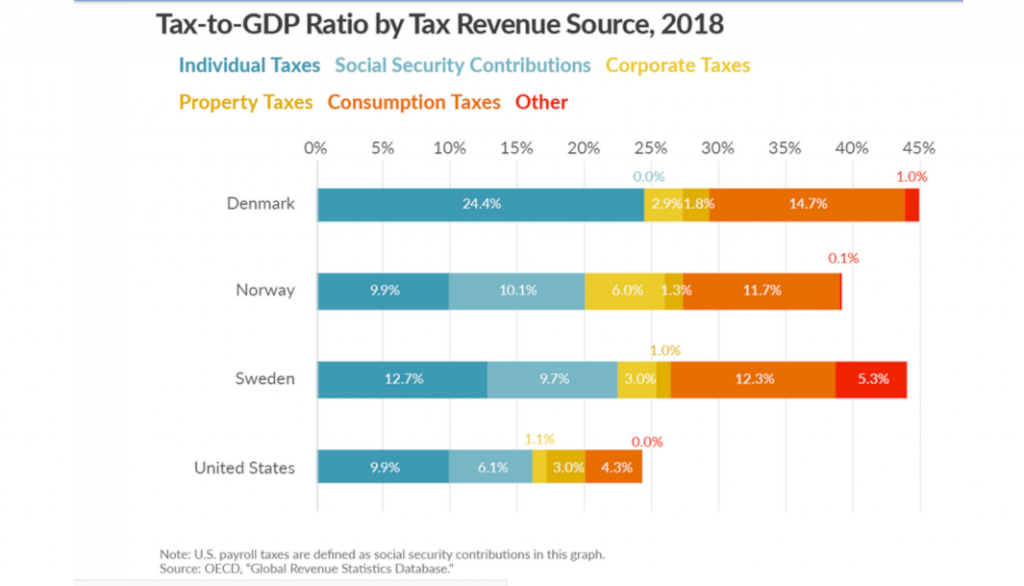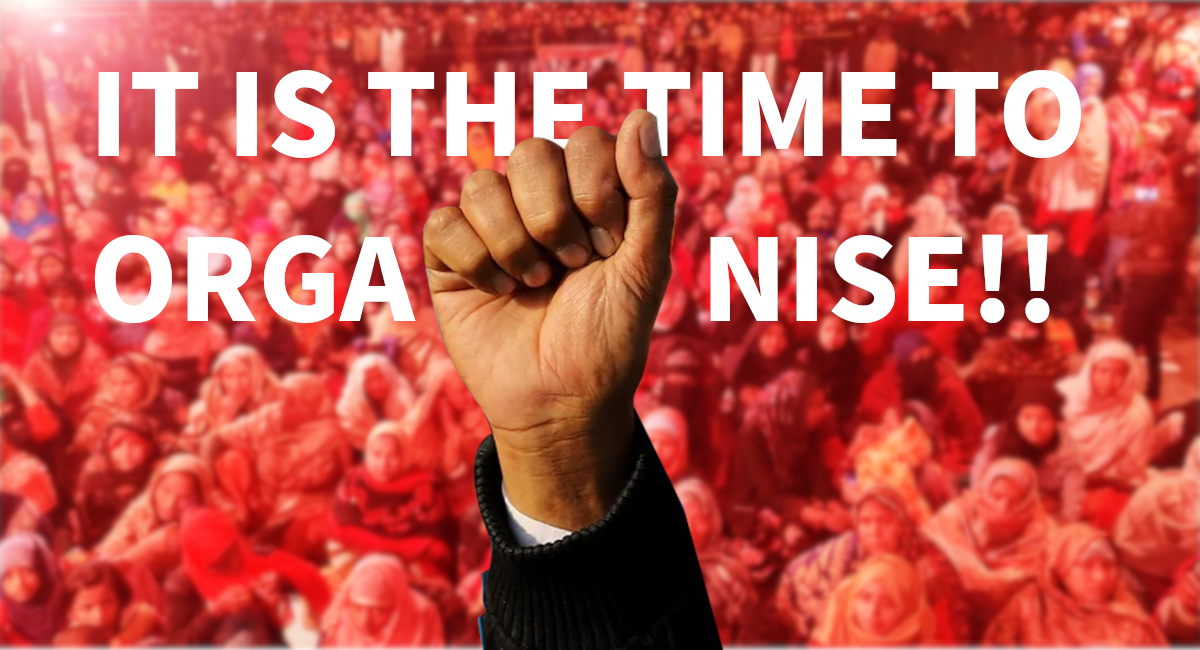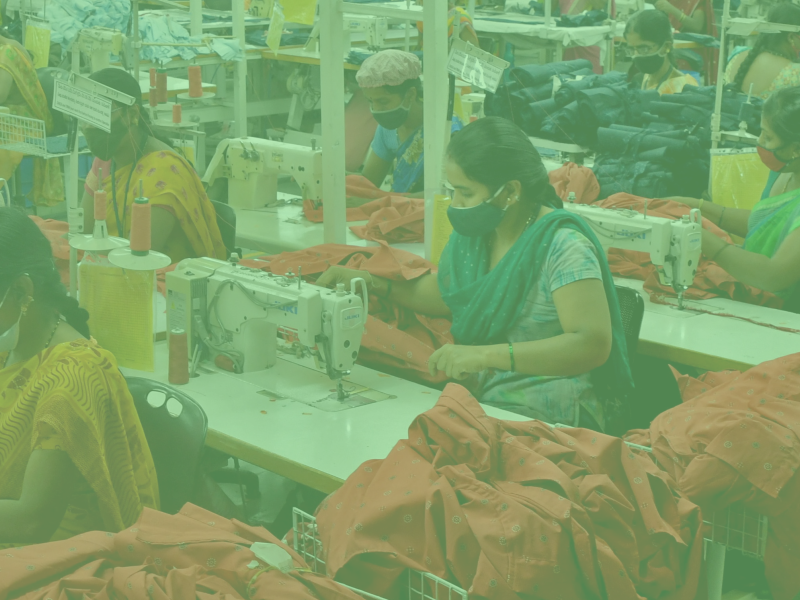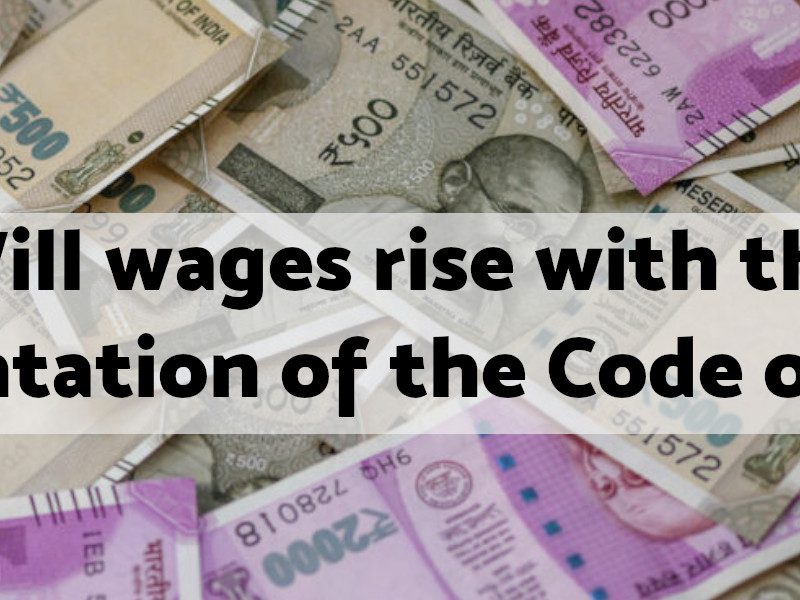“It was the best of times, it was the worst of times, it was the age of wisdom, it was the age of foolishness, it was the epoch of belief, it was the epoch of incredulity, it was the season of Light, it was the season of Darkness, it was the spring of hope, it was the winter of despair,.Thus wrote Charles Dickens in A Tale of Two Cities. As we mark the 135th year of the massacre of workers at Haymarket sqaure and remember the struggle and sacrifice of innumerable working people who advanced the rights of workers these lines resonate more powerfully than ever.
We are destined to live at a time where elected governments have turned against their own people. A deadly virus has forced death and misery upon us. At the same time a few have found an ‘opportunity’ in this crisis to fill their coffers with governments aiding them by snatching away legal rights which had been hard won through years of struggle. It indeed is a time of darkness and despair.
They system has not collapsed, it has only been exposed
Political leaders and the media they control have been broadcasting two types of messages – on one hand they tell us that the system has collapsed because it has been overwhelmed with the sudden large scale crisis; on the other hand they glorify how people are helping each other to deal with this crisis. Both the broadcasts are aimed at taking our attention away from the real problem. The problem is our existing system itself. A system which is profit driven and glorifies and aids those who can convert ‘crisis into opportunities’. This profit driven system has always been anti-people. It is rigged to work for a handful few who control the resources. The pandemic has merely exposed the clockworks of this system which otherwise remains veiled behind the rags to riches stories of a chosen few and their philanthropy.
For instance – one of the richest men on the planet, the poster boy of capitalism and the newly christened philanthropist Bill Gates invested $ 10 million in vaccines through Bill and Melinda Gates Foundation. In an interview Gates conceded that his ‘investment’ in vaccines mainly through three groups: the Global Alliance for Vaccines and Immunization, the Global Fund to Fight AIDS, Tuberculosis and Malaria, and the Global Polio Eradication Initiative has converted the $10 million into $200 million. He said, ‘there has been over a 20-to-1 return.’ One may ask what the problem with this is? The problem is simple – for profits to continue the disease must not be cured. If the disease is eradicated the medicine is no longer required and therefore the profits on the drugs will dwindle away. Another problem lies in the demand and supply of the drugs. The manufacturers will prefer that there remains a shortage in the market to drive the demand higher and thereby the prices.
Sounds evil? That is because it is evil. In 2018, Goldman Sachs, a leading global investment banking firm, presented a report to the pharma companies wherein it advocated that curing patients is not a sustainable business model. Citing the example of treatments for hepatitis C, which achieved cure rates of more than 90 percent it presented the case of Gilead Sciences Inc, the company whose U.S. sales for the hepatitis C treatments peaked at $12.5 billion in 2015, but have been falling ever since. Goldman estimated that sales for these treatments will be less than $4 billion this year, thereby making the cure a ‘non-profitable business’.
Medicines are essential to save human lives and ensure dignity of life in many cases. The fact that governments have allowed companies to profit from misery says volumes.
If we are to consider COVID vaccination in this light, things automatically fall in place. There is a shortage in supply of the vaccines because it would allow for the prices to be trumped up. Exclusion rather than universalisation is being promoted, so that people can be pitched against one another thereby creating a conflict among working people which takes the attention away from the real issue. For instance, those who were being lauded as the frontline workers – the contract health workers, safai karmcharis, delivery workers, journalists, crematoria workers—were denied the vaccine when the first set of vaccination programme was rolled out but they were required to continue their work. This led to demands being raised from every group of workers for them to be considered as essential workers entitled to the vaccine. Workers in different sectors who are struggling with the same problem are now pitted against each to ensure their own safety.
Registration with Aadhar card, one time passwords (OTPs) sent on phone are all detrimental to fighting the virus in a country where over 66% of the population does not have access to internet and over 50% adults have never used internet.
A similar binary is created by the state when it imposes a lockdown. Those who have the privilege to stay at home coop up in their comfort and blame those who have to take to the streets to keep themselves from starvation. However, this can be easily averted if the government steps up and does its job – work for betterment of people.
Consider Cuba, a small country in the Caribbean whose health facilities put some of the largest economies to shame.
| Resources per 1000 people | Cuba | India | USA | China | World |
| Hospital Beds | 5.3 | 0.5 | 2.9 | 5.3 | 2.9 |
| Nurses and Midwives | 7.6 | 1.7 | 14.5 | 2.7 | 3.8 |
| Physicians | 8.4 | 0.9 | 2.6 | 2 | 1.6 |
Further, all health facilities in Cuba are run by the government and available to people for free. This has a great impact on the quality of life of people and how things pan out during a health crisis. When the country is well equipped to handle the situation the government does not have to go into hiding or denial. People too know that the government will take care of their needs and do not panic and accentuate the crisis. Compare this to the United States of America where healthcare is privatised and people are dependent on health insurance to fend for themselves. This model is inherently aimed at creating disparity among people. Those who have the ability to pay get served while those who can not afford to pay suffer for want of healthcare. Hence, when the pandemic hit USA there was large scale distress; those who could not afford healthcare died in large numbers and the country has the highest number of deaths reported due to the virus – over 582,000 people dead and counting. The government, for the most part, was absent. Most resources of public use are under corporate control. Thus, unlike Cuba or China were the government took control of the situation, USA experienced food shortage in supermarkets and essentials as basic as toilet paper went missing from the shelves because people panicked and those who could afford, hoarded essentials.
Free market economists and corporate intellectuals have for long campaigned against government taking control of the resources and spending it for public use. An argument often posed is whether the Cuban or Chinese model is sustainable and can it be replicated in other countries. The answer is yes. For instance let us consider Kerala, it was the first state to report COVID cases in India. It also saw a rapid rise in the cases because a large number of people traveled back from abroad. The government ensured that contact tracing was meticulously followed, tests were available for free and test prices were controlled at private centres and most important of all, food ration reached every household. This ensured that the lockdown was diligently followed by people because they were not scourging for want of food and medication. Can the Kerala model be replicated across the country? Yes.
Let us take for example the Scandinavian countries (Denmark, Norway and Sweden) which also top the chart on the most obsessed list of Ease of Doing Business. Taxes in these countries are considerably higher than the United States of America and they fare better on happiness index when compared to other countries in the global north.

The reason – social protection. Essentials for a happy living are ensured by the state. Scandinavians get universal healthcare, childcare and education. They also get some of the best retirement benefits and unemployed people are taken care of by the government through a respectable unemployment allowance. At the face of it they may appear to be independent of each other but these are all intertwined. A heavy tax ensures that the government has the resources to provide to every citizen the same quality of services. It would be difficult to produce the doctors required to run the universal healthcare system without a universal education system. It would be difficult to ensure that the healthcare system runs smoothly if people are trapped in poverty in case they lose their jobs or retire. Poverty makes people prone to diseases because of lack of nutrition, sanitation and a healthy state of mind. Therefore, a respectable unemployment and retirement benefit is much required. Similarly, those who ensure the smooth functioning of these services such as janitors, plumbers, electricians, programmers, scientists and educators are part of the same cycle. Everyone is dependent on the same pool of shared resources. If one section is privatised the other suffers invariably–something that we saw in Delhi, the capital of our country, when people died for the want of Oxygen. Even our public hospitals are dependent on private companies for supply of something as essential as medical oxygen. The company producing medical oxygen is not bound to cater to the need of the public at large but allowed to put its profits first. It can therefore choose to deliver the product, in this case medical oxygen, to the highest bidder. In some cases it could also be a foreign buyer who would be the highest bidder in which case the company would export the supplies while people continue to die for the lack of it, whereas if the production and supply of medical oxygen was under the control of the government it could have been judiciously routed according to the demands of the hospitals. In case of shortage another arm of the industry could have been pulled in. For example, Steel Authority of India limited has been asked to process oxygen for industrial use and divert it to the hospitals. A similar demand cannot be placed on a private industry for they can put a price for this service which may drain the public exchequer. Our political leaders are right when they say it is not the business of the government to run the businesses. Our lives are not meant to be governed as businesses based on the assessment of profit and loss. These are public goods and services which must be by economic definition delivered by the state to ensure its availability without prejudice.
At this juncture another argument can be thrown in – that of our large population. A large population is a drain only because it is treated as a mere statistic. If the large population is used as a resource, things can be turned around drastically. A large population could mean – a large population of doctors, engineers, teachers, artists and professionals who contribute towards the enrichment of the country as a whole. The Cuban example once again comes handy. Since the Castro government took charge on 1 January 1959, it used its population as a resource and achieved a literacy rate of 100%. It is no surprise that the country also has the highest number of physicians per 1000 people and was the first to send teams of doctors to other countries to fight the pandemic. It is the only country where the government is working on the development of 5 COVID vaccines, of which 2 are in their third state of testing and would be available to people soon. Can India achieve this level of self-dependence with its population?, the answer definitely is yes.
There is a lesson to be learned, an easy one
Taking care of the essential needs of people is the role of the government and corporations can not be allowed to benefit from the vulnerabilities of people. It has been achieved in several parts of the world and can be achieved in our country too. All it requires is the demand from the people for a better centralised policy which puts people first and holding the government to account for the tasks from which it has absolved itself. Education, healthcare, employment cannot be left to the corporations for them to make profits.
Social media cannot be the replacement for social protection. We will indeed have to help each other in the times of need but such times of desperate need can be easily averted if the resources remain under the control of the people and not a few corporations.
The pandemic has given us the opportunity to strike at the core of this system while it lies exposed and change it for the better. As Dickens said, it is also the best of the times; it is indeed the best of the times to organise and overthrow this system which thrives on milking the misery of people. Another world is possible and we can achieve it if we organise for a better future for all. There can be no better time to change the darkness of despair into the season of light, we have everything before us to be won.



